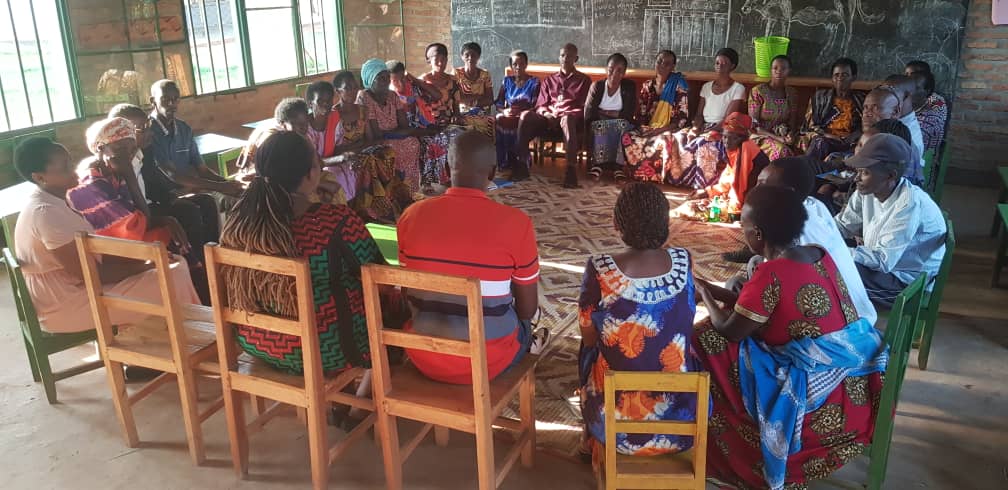It can be annoying to be told you are over-thinking an issue. We hear the expression often in our projects in Africa, but it has a different meaning. Survivors of conflict who are troubled by horrific flashbacks tells us they “think too much.” Not all societies have the same familiarity with mental health that people in the global north have. Our partners in Uganda, Rwanda and Sierra Leone are especially sensitive to the stigma that attaches to “thinking too much.”
Understanding Trauma and Breaking the Cycle
Our role is to provide people with the psychological tools to manage flashbacks and negative thoughts. This process starts with gaining an understanding of depression and trauma. People can feel isolated if they think they are uniquely trapped in painful memories. It becomes a vicious circle if they fear the symptoms of depression – headache, exhaustion, stomach aches – are due to serious physical illness.
Group counselling in a safe and confidential space can open the door to a revelation:
I’m not the only person who feels this way.
Strong bonds are formed and people support and encourage each other.
Now I have friends who understand me.

There is a strong link between poverty and poor mental health. It is hard to escape the vicious cycle if you have few resources, or if you missed school because of the conflict in your community when you were young. In a society where family connections are vital, it can be challenging for orphans and widows to cope.
Looking Ahead with Skills and Support
Our project partners offer business skills training to members of their counselling groups who feel they have reached the point in their recovery when they are ready to look to the future.
In the words of KM (we hide her identity for her safety) age 34, a genocide survivor with two children:
Now, I wake up feeling energized to work, whereas I used to be a sick person, sad. I no longer have suicidal ideas. I have opted to live.
We salute KM and the thousands of brave survivors like her who choose the future rather than the past.
Thank you for supporting Network for Africa and our project partners. To continue helping us, please visit our donation page. Thank you.